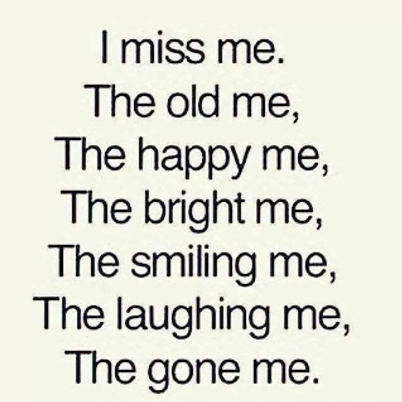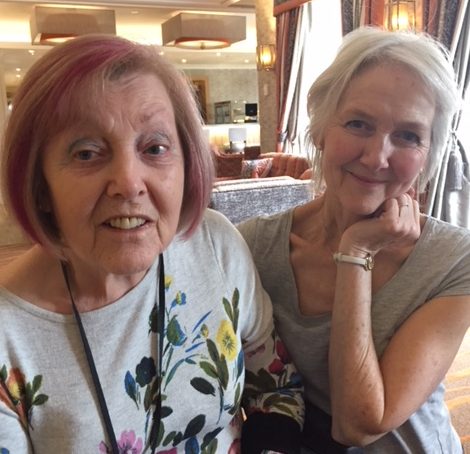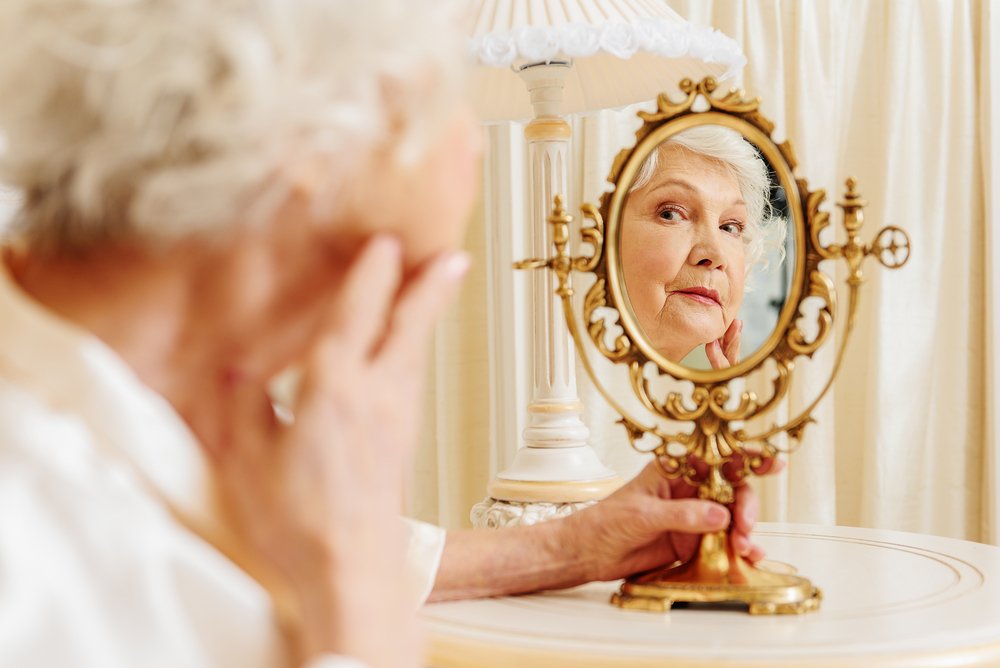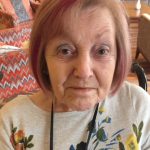The James Lind Alliance Priority Setting Partnership for Stroke in Scotland Top 10 priorities for research include “what are the best ways to help people come to terms with the long term consequences of stroke?” and “what are the best ways to improve confidence after stroke?” In this blog, Caroline Carus reflects on some of the impacts of her stroke, one year on.

I read this poem on Pinterest – it is exactly how I feel. I don’t feel me any more.
I feel minimized.
When I first had a stroke, a sideswipe across what my life had been, I couldn’t take in the enormity of it. I didn’t understand the totality of the minuses, the masses of things it would mean. I couldn’t take in that I couldn’t walk.
I miss me.
Simple things, like if I’m doing flowers I don’t have strength to use the secateurs. I used to enjoy calligraphic writing, but I can’t make it accurate any more. I used to do a lot of artistic things and I didn’t question it then. Now, I constantly question my level of ability. Now, I don’t have the confidence to go forward with it.
I’m not as good as I was.
I was told [by a senior person] “dust yourself down and just get on with things”. I could have screamed. I thought, you can’t have the slightest conception of what this means. Suddenly to find yourself unable to do all these things that you never questioned before. I’m not a ‘dust yourself down’ sort of person! I want people to understand that I’m really suffering.
You try desperately to get back to the way things were. One of hardest things is to talk to people about how to get back to how things were before. How you speak to people about that is crucial.
I don’t feel I have the confidence to speak in the manner I would have, to people who didn’t know me before. I feel they would know I’ve had a stroke. I don’t want them to know because…
I feel less of a person, less of a force.
I don’t feel that I have the same authority. I’m sure I don’t have the same effect. I’m embarrassed about the fact that I have an impediment.
I feel what do I have to offer people now? I’d always cooked. I thought who’s going to want to bother with me now? People at [Caroline’s first retirement village] spent a lot of time reinforcing that there was a lot I could still do. I didn’t have confidence that there were any real things I could do.
I try even more to be a more notorious figure than I was. To convince people that the real me is there.
I feel a million times less attractive in my wheelchair than when I trooped though the town in my designer clothes. I can’t let go of that because it’s absolutely me. It is a big part of me. Clothes and make up, my hair – the bright unusual colours, have helped me adapt. Shoes with heels, I must get back to those…
I miss me.
Confidence. You find yourself questioning everything you do. Your understanding changes – I don’t feel sharp enough. I’m nothing like as quick as I was. I’ve always been able to pick up on things quickly. Now I get really cross with myself.
But…
It’s made me more reflective, because I do things more slowly. Sometimes the bad decisions I made before were because I didn’t think about them. I used to go at things like a rocket. Now I think carefully. I recognize that you must never drive people; they get mentally and physically shot and I must think about that. Now I know not to [drive them]. I think about that person’s ability and tolerance. I will push myself, but I recognize I mustn’t push them. Now I think about things and in some ways feel better about myself – I feel like a nicer person. But I don’t want to be boring!
People go through different emotional planes [after a stroke]. Constant security from people can help. Having someone who understands me. Someone who knows ME.
I miss me. The old me. The gone me.




my stroke destroyed my internal terrain and there is no one to tell I feel like I am dying. I don’t think I have symptoms. my candle is growing dim very fast.
So sorry to hear this. You may know about this already but, in case not, in the UK the Stroke Association is a charity where you may find support, as well as information. Their helpline number is 03033033100 – it’s for anyone affected by stroke. They may also have support services in your local area, but this would be a good place to start. Their website page on support is here https://www.stroke.org.uk/finding-support
Wishing you all the very best,
Sarah Chapman [Editor]
I am 76 and had a stroke about 6 weeks ago. The stroke did not affect me in a big way, as I can still talk clearly, ride my bike and walk normally. I know I am very fortunate. But I sometimes think I am not the same person, I still wear makeup and wear nice clothes, which I have done so for 60 years. Occasionally I miss me, and I am more tired than I used to be.. I try and do everyday things , cook breakfast, housework and be optimistic. I look forward to every day and appreciate, I am still here.
Thank you so much for sharing this. I’m 44 and had a massive stroke March 11, 2019 that nearly took my life. Luckily the lord decided it wasn th my time yet but I did lose the use of my left side ability to count money. Tell time and so much more.i ask myself often who’s going to want me like this? Or what good am I now? It was refreshing to know that I’m not alone. So thank you again fo r.c your bravery.
This was a very informative and valuable read. I can only imagine the struggle it was to cope with after a stroke. Thank you for your honesty and candidness. I did not know all the obstacles stroke victims dealt with, including aphasia until reading an article about it, and how to cope with it. https://www.ez.insure/2019/05/aphasia-causes-types-treatment/ Thank you for talking about your story, and giving insight to others on how stroke victims feel, and how others should be mindful, and react more patiently with stroke victims.
Thank-you,I have been looking for another who felt h this way after their stroke. Now, after three years, I still wake up just longing to feel like me-comfortable in my own skin. I can deal with the hemiparalysis and functional loss. I was a surgeon, took care of myself but never sat still . I was the ultimate multitasker. I could juggle a zillion things in my head and get them all right in the end.I’m lucky now if I can get one. I did not know failure. I do not feel like me.I lost that sense when I talk to my children. They say they know its dad-but I want to feel like dad when I advise or give an opinion. It is not about a task or capability. I practiced my math problems over and over but I am not here….bye…I don’t think I’m coming back
Dear unknown Caroline,
Thank you for sharing your thoughts.
I assume that you are still yourself, as you are demonstrating that you are well being able to reflect yourself pre and post – which to many is a challenging task, but you manage brilliantly! Respect! I remember that the most important gain to me following a stroke was to be able to wash my hair again without any help and to dry it the way I like it. That is freedom! Wishing you lots of „gaining back“ moments! Yours, W (Germany)
I’ve shared this Caroline. This is such a thoughtful piece of brave writing. You are dearly loved by many, but to read something about your feelings is a privilege that will help us all understand even more. You’ve come such a long way in a year and your generosity, which was always part of the real you, is as strong and beautiful as ever. Lots of love Jill xx
A wonderful piece which I have shared on my Facebook Caroline, and I still see the real you. Hope to bring the girls to see you soon. With love, Jill’s Helen x.
Caroline, my dear friend, so well written, so honest. You always had a way with words and now you are using them so effectively. Lovely photo of you both.
Thank you for taking the time to write this post Caroline. Your words tell an illuminating story of how a stroke can impact on a person’s sense of who they are. As health professionals and stroke researchers – we should never forget that. Lesley
Thank you for taking the time to write this post Caroline. Your words tell an illuminating story of how a stroke can impact on a person’s sense of who they. As health professionals and stroke researchers – we should never forget that. Lesley
Dear Caroline
Thank you for writing such a valuable piece. Your honesty and insightful thinking are refreshing and will encourage us to think about the ‘me’ when speaking with a person who has had a stroke.
Audrey
I feel this every day I am also a stroke survivor but I’m not the person I used to be and that is a struggle every day. I’m a lot like you I make bad decisions because I don’t think them through all of my brain doesn’t process the information correctly and I just blurt things out. It feels good to read that I’m not alone in this. But I miss me!
What a lovely, honest, and brave blog post!
Thank you for sharing your experience so openly as it will bring many people great comfort to know they aren’t the only one going through the exact same thing.